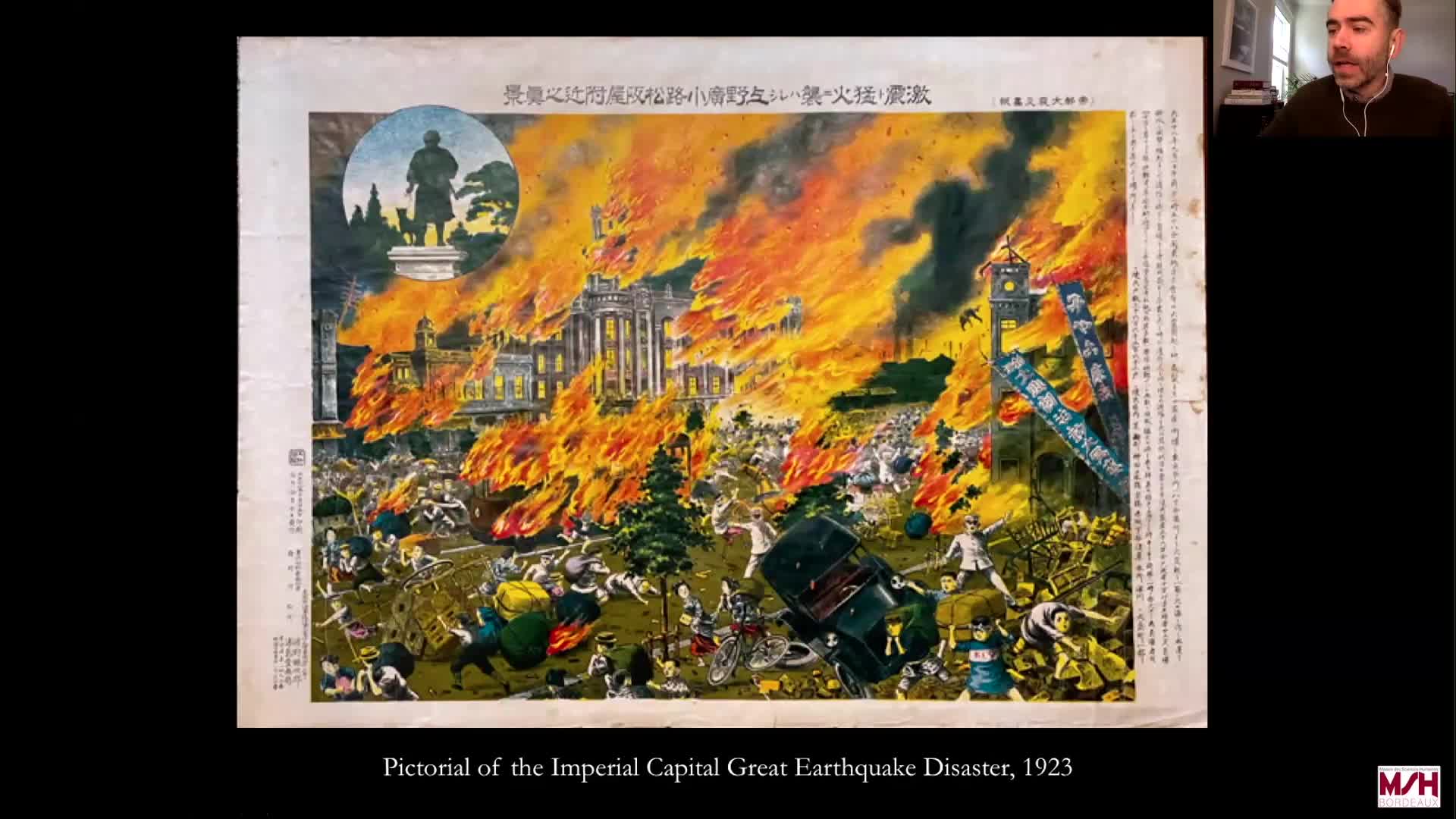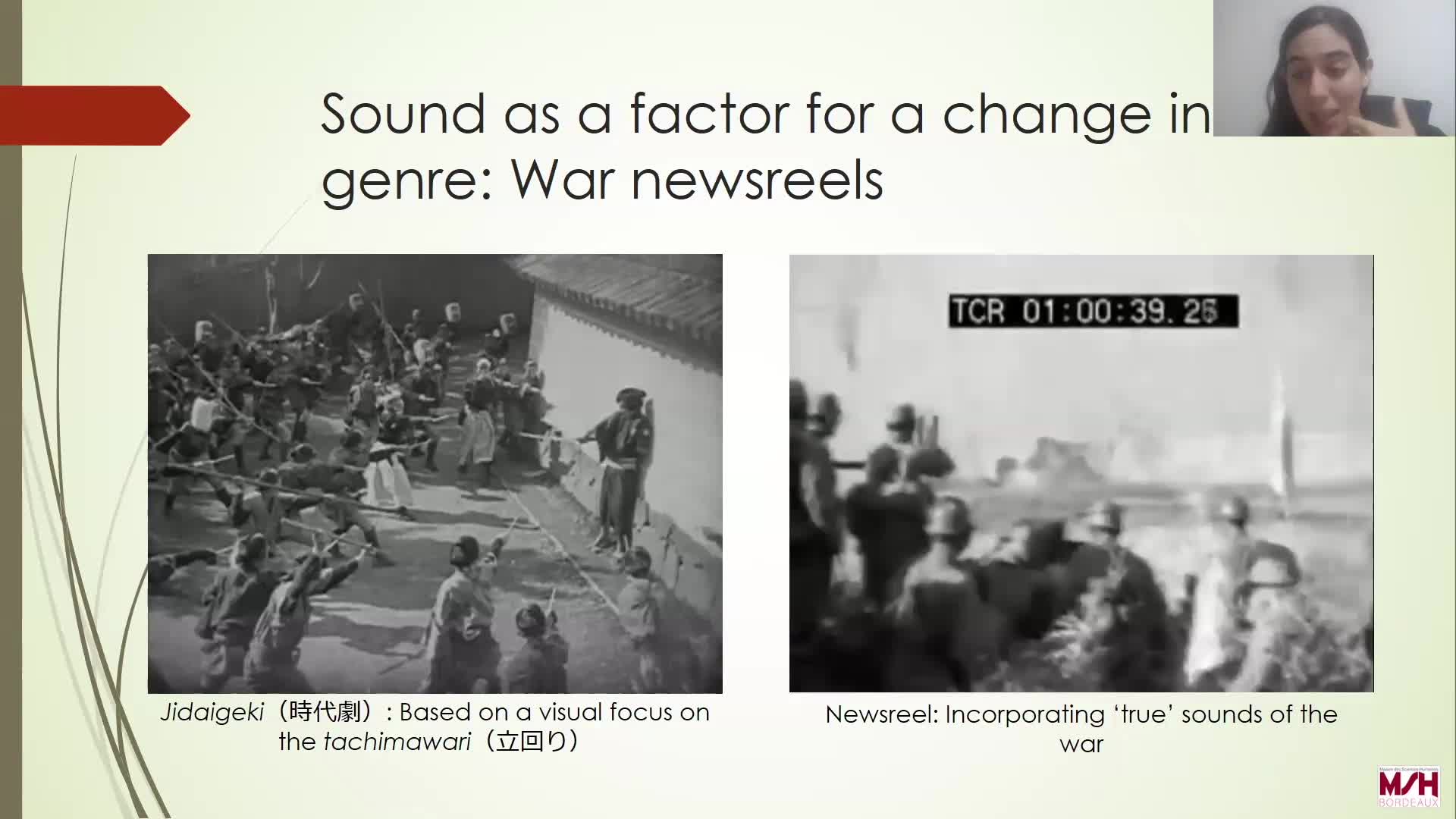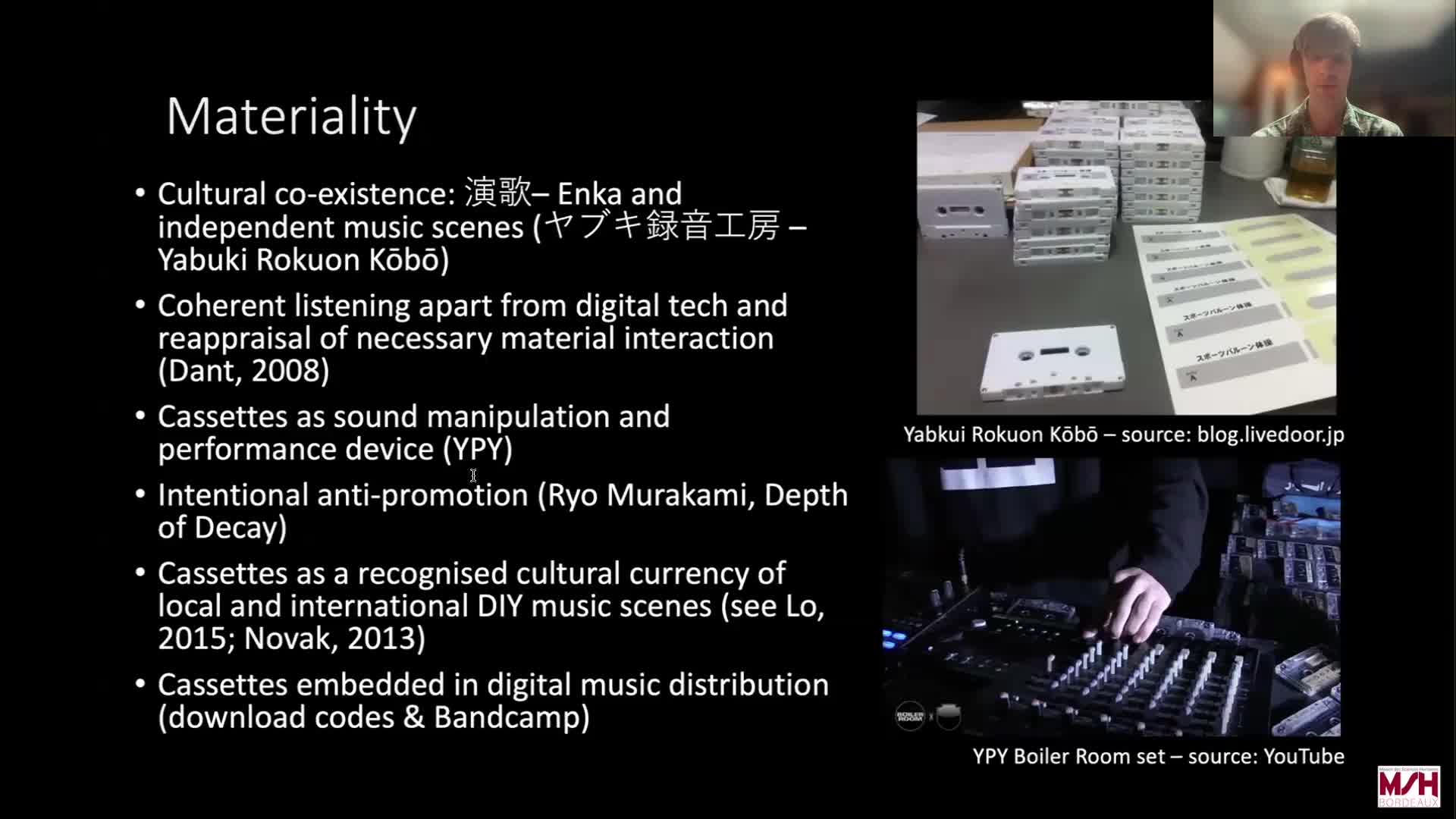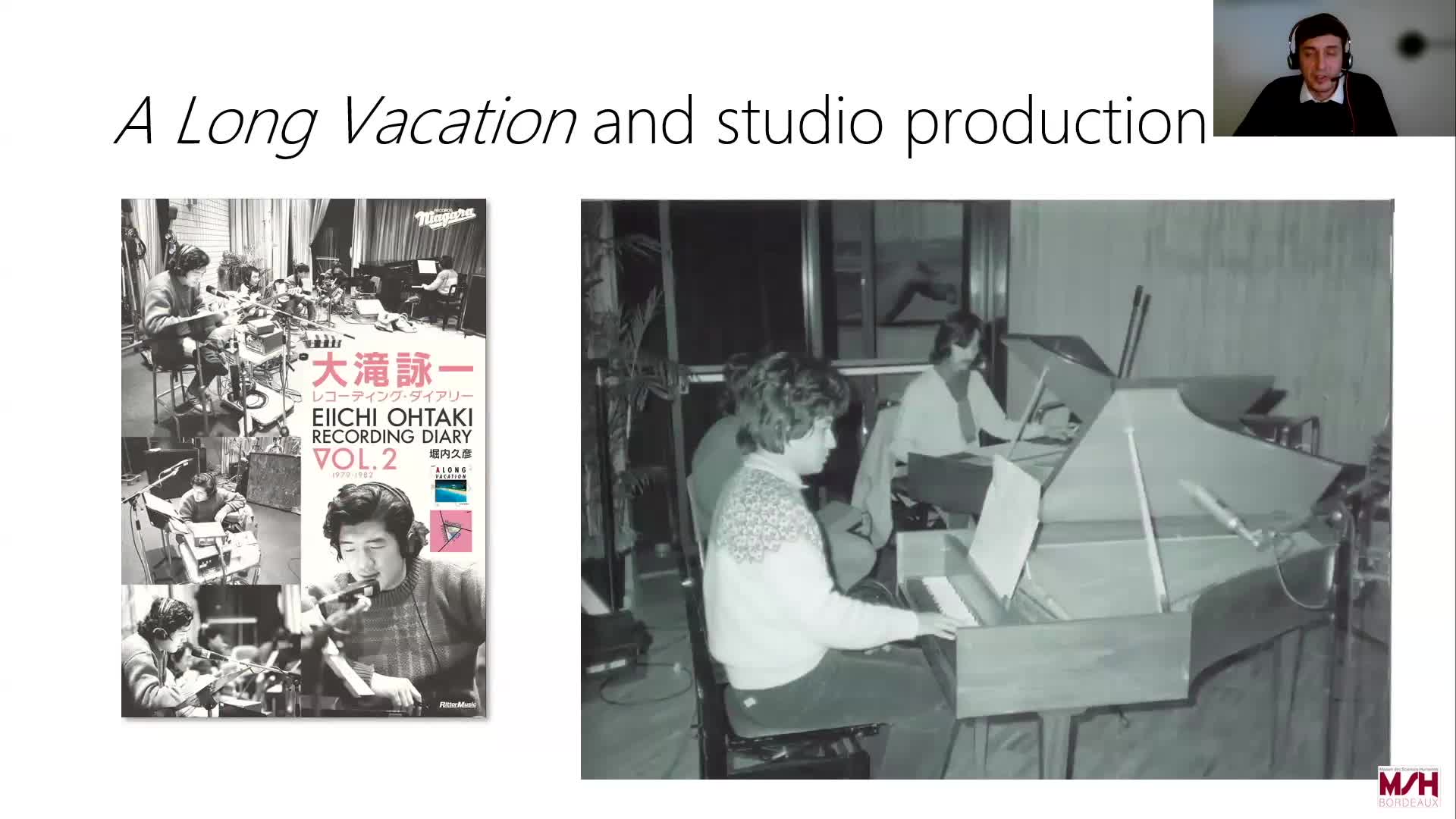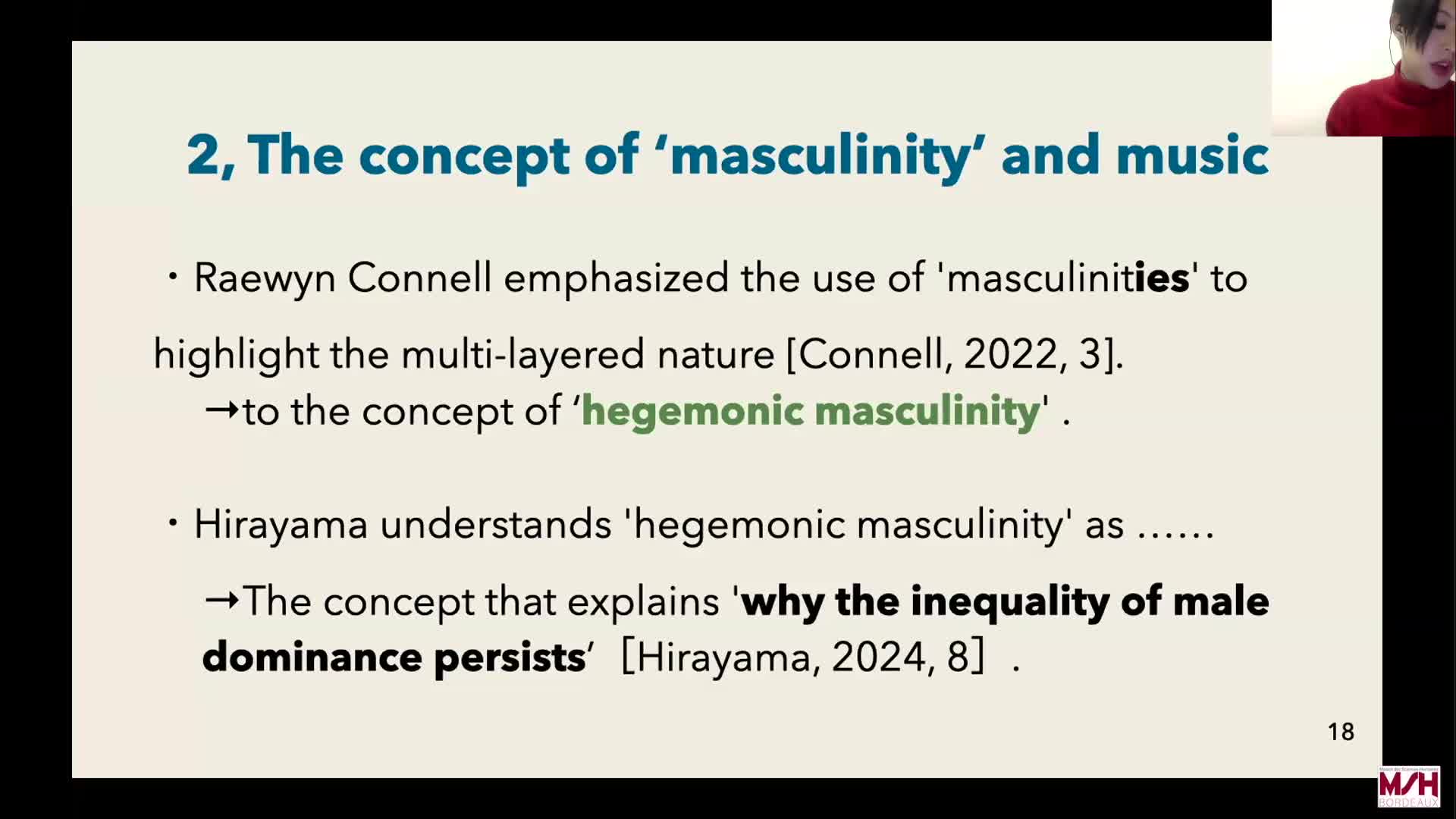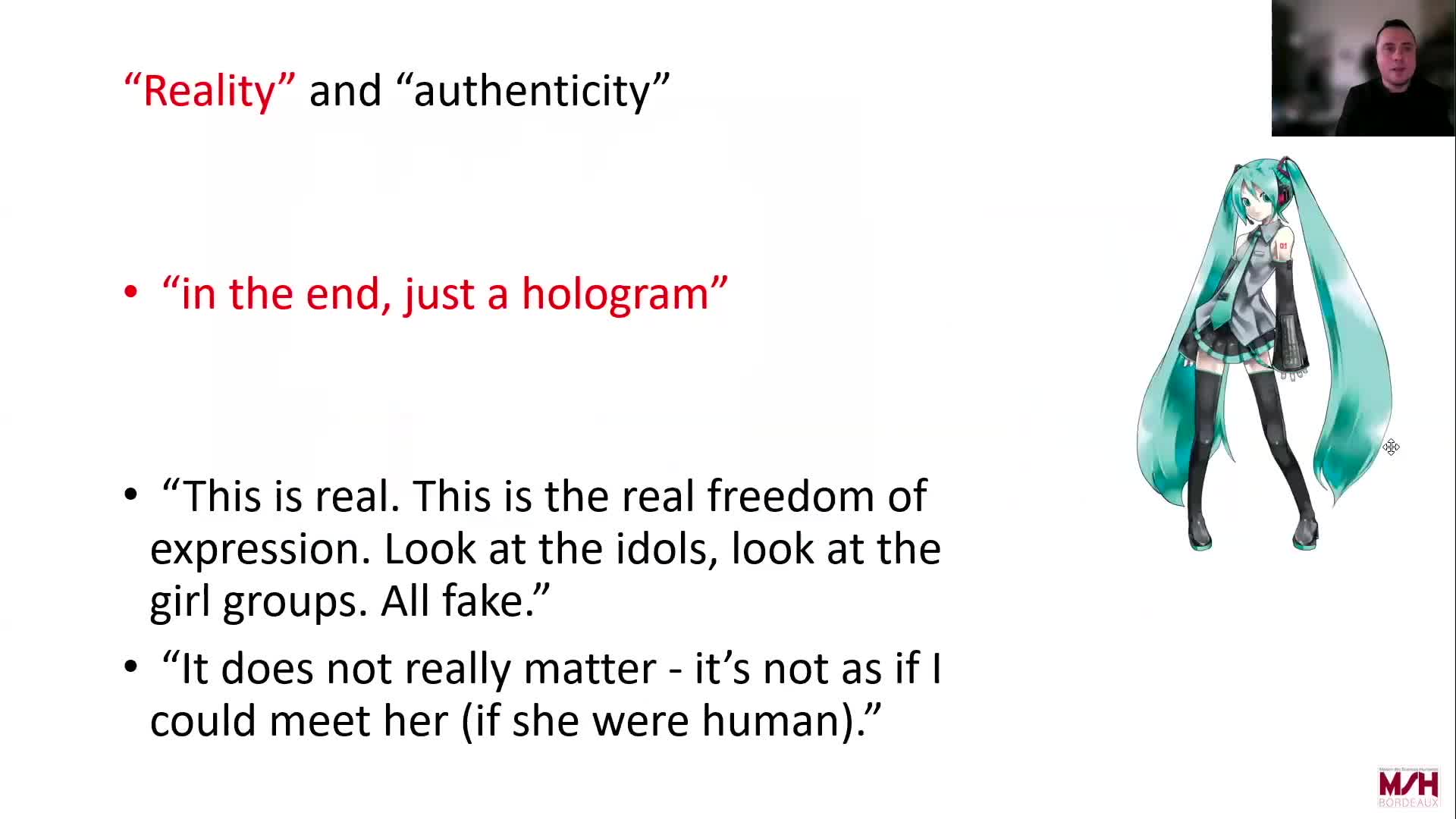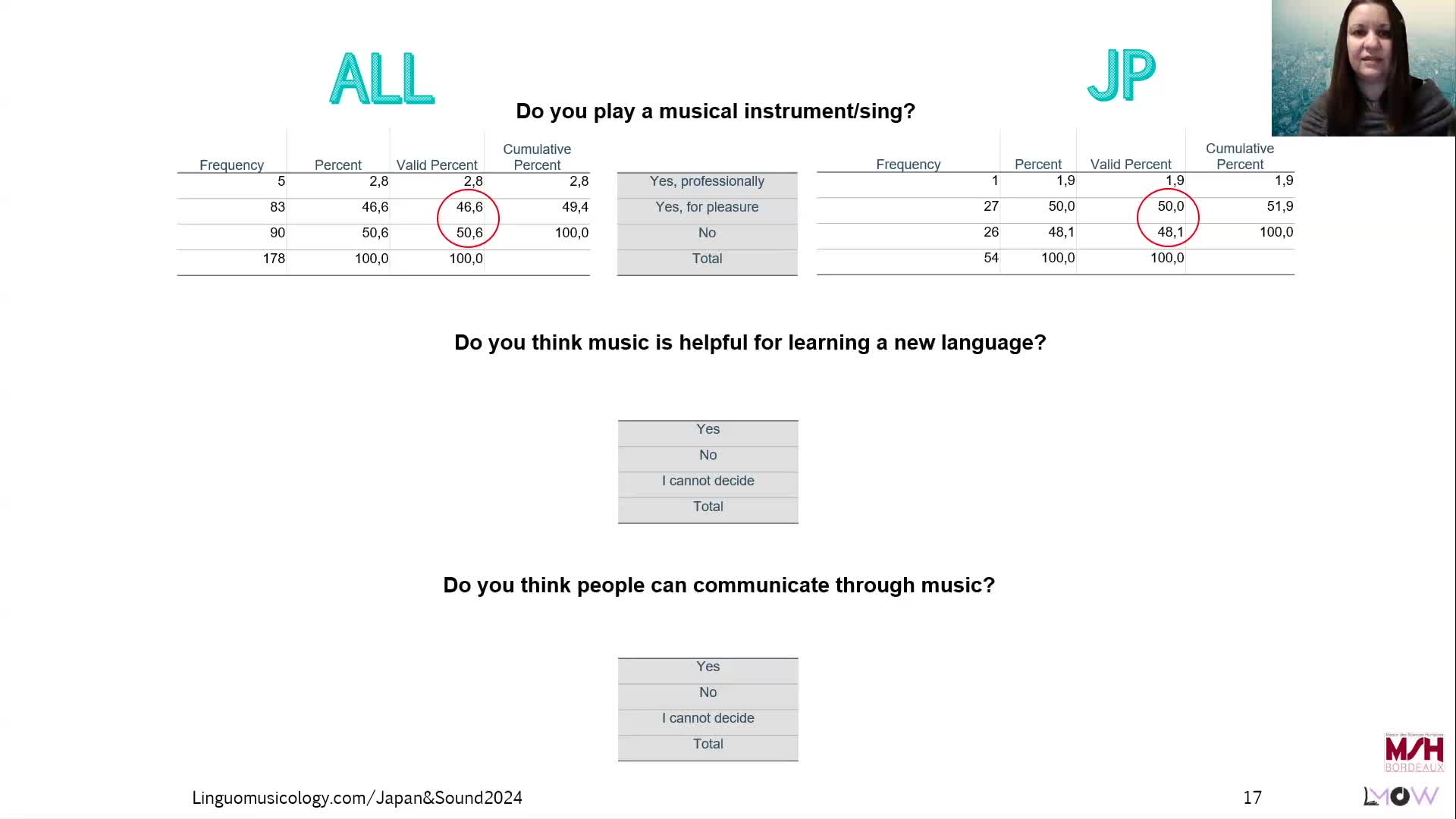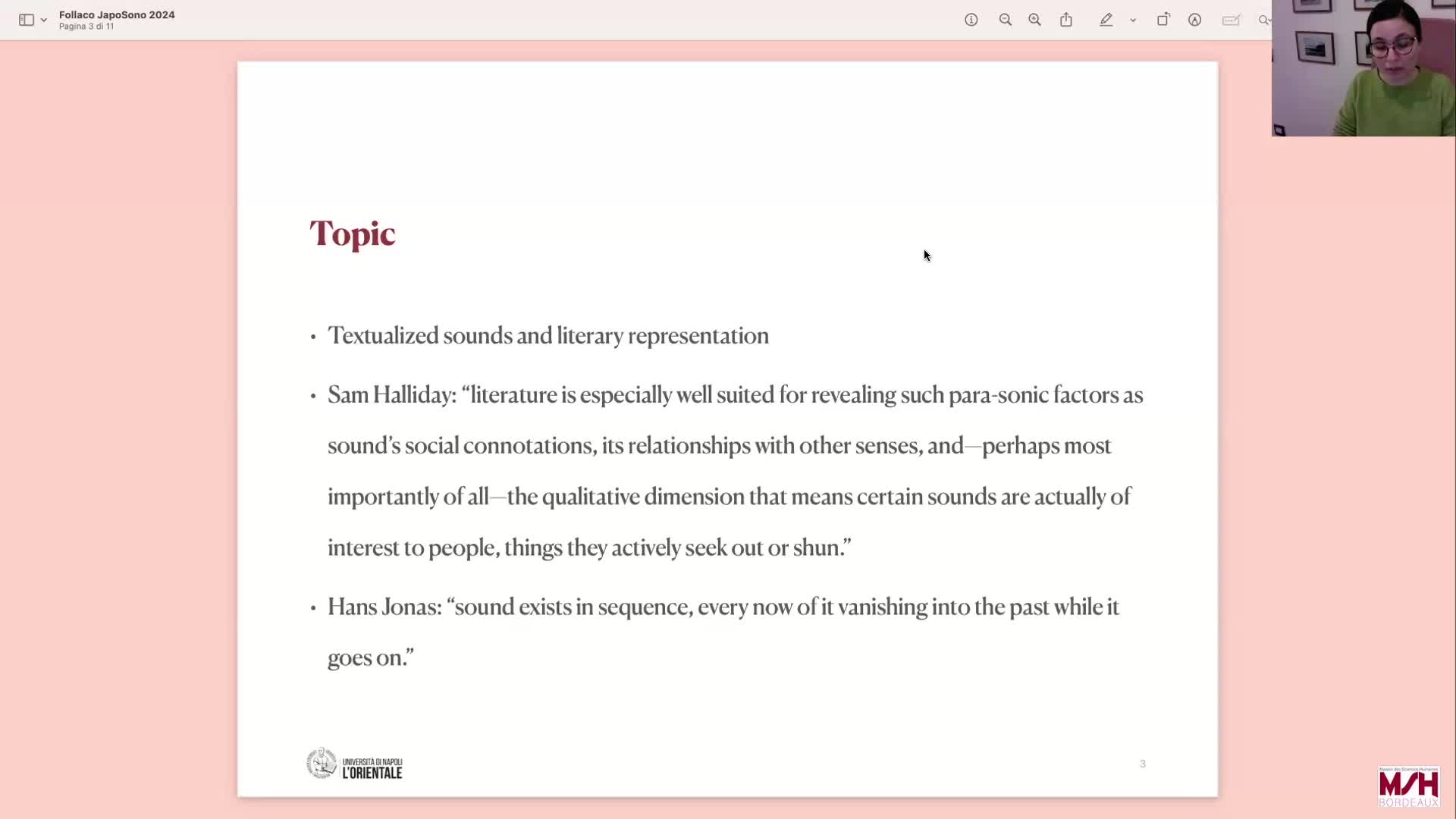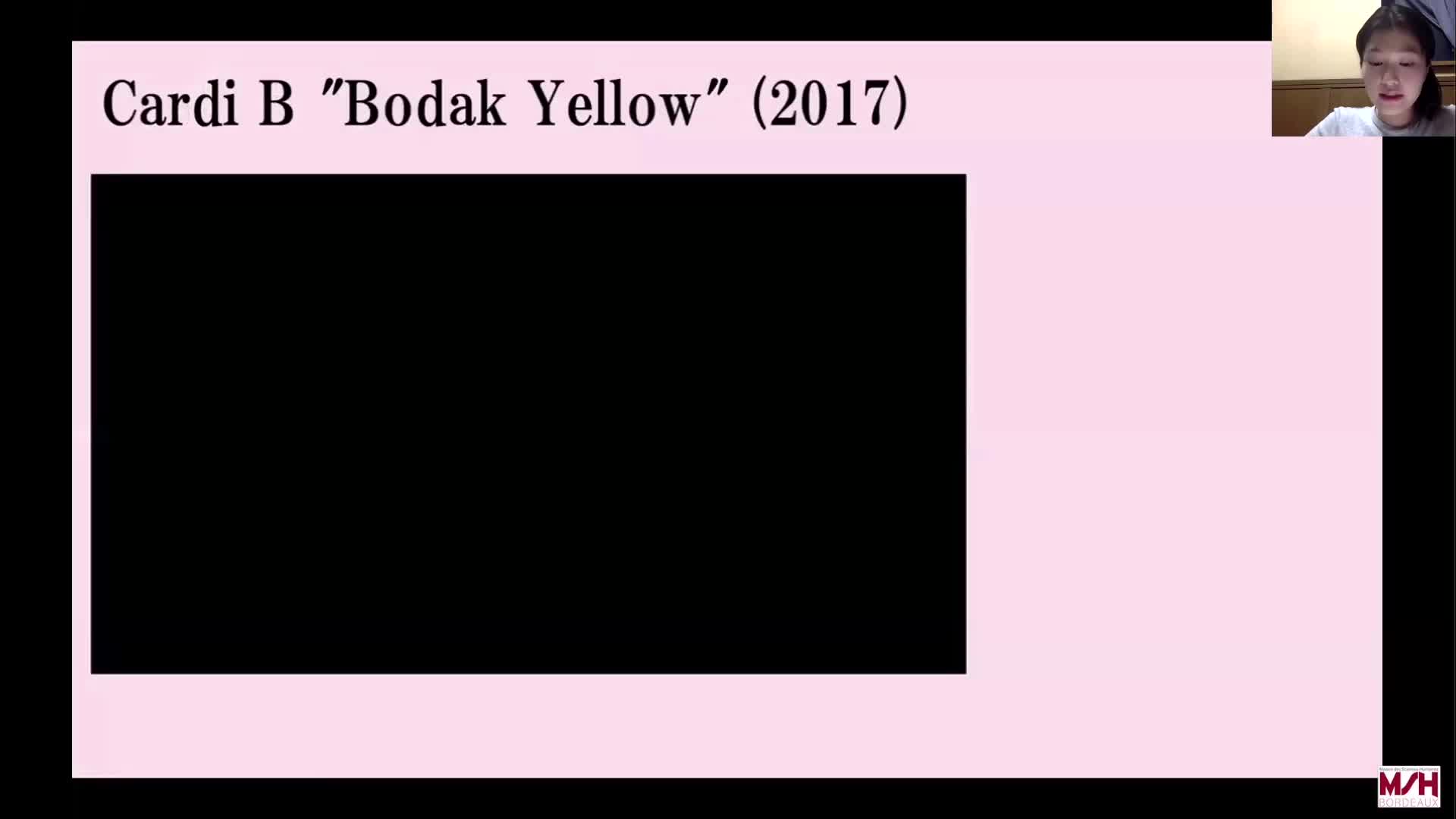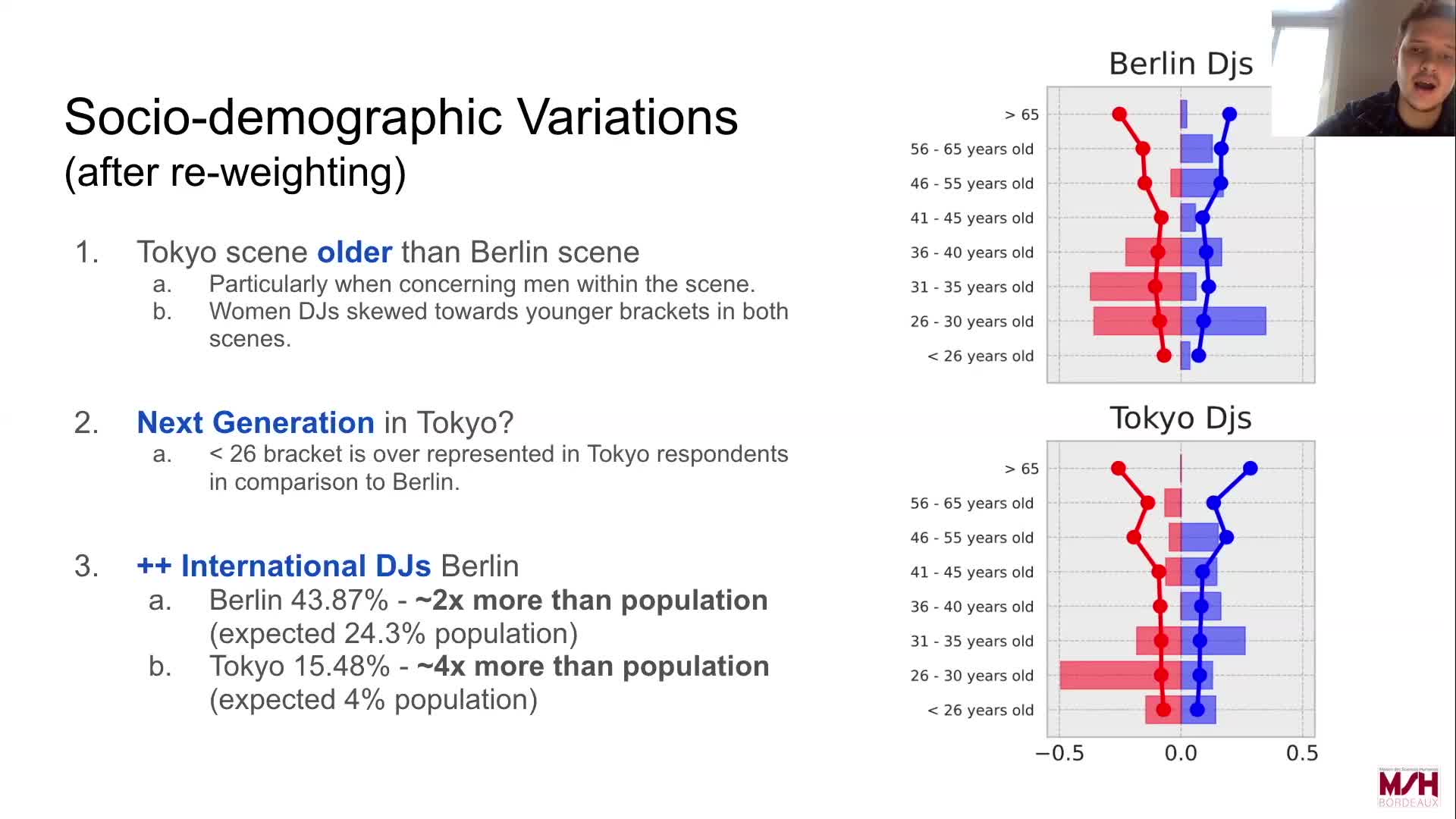Notice
Downplaying eclecticism: Traumatic transnational adaptations in Japanese video game music
- document 1 document 2 document 3
- niveau 1 niveau 2 niveau 3
Descriptif
Mattia Merlini, "Downplaying eclecticism: Traumatic transnational adaptations in Japanese video game music".
Panel 3 : Représentations du média sonore / Representations of sound media
Japan is known worldwide for being one of the most prolific countries in video games production. But sometimes, in the struggle of making the games enjoyable by the widest audience possible, Western localisations of those products differ significantly from the original version – even in terms of music. As a matter of fact, there are several examples of Japanese video game soundtracks being edited, rearranged, or entirely replaced in Western editions. In this paper, I explore a selection of case studies of what I call “traumatic adaptations” of Japanese video game music in the West, focusing on how the typically Japanese trait of stylistic eclecticism gets lost in translation, usually to accommodate more “standard” or “Hollywoodian” choices. I thus address changes that can be as little as differences in the mixes of two versions of a track (e.g. the theme song “Kuroi uta” from Drakengard 3), or as big and comprehensive as in the cases of entire soundtracks being rearranged (e.g. Crimson Dragon) or even replaced with non-eclectic Western music (e.g. X-Kaliber 2097). This, I argue, configures eclecticism as an eminently Japanese-sounding musical trait, that sometimes ends up being disguised to create a final product sounding more familiar to Western listeners.
Colloque "Le Japon sonore : modernité, constructions sociales, rapports de force / Japan and sound: modernity, social constructs and power relations" 14-16 novembre 2024, organisé par Jeremy Corral (UMRU 24140 D2IA, Université Bordeaux Montaigne) et par Chiharu Chûjô (EA 4186-IETT, Université Jean Moulin Lyon 3).
More informations: https://mshbordeaux.hypotheses.org/10930
Thème
Dans la même collection
-
Clôture du colloque / Closing comments
CorralJeremyChujoChiharuColloque "Le Japon sonore : modernité, constructions sociales, rapports de force / Japan and sound: modernity, social constructs and power relations"
-
The ear is a weapon: Soundscapes of racial violence in Tokyo, 1923
Colloque "Le Japon sonore : modernité, constructions sociales, rapports de force / Japan and sound: modernity, social constructs and power relations"
-
Recorded sound and the development of ideological control: Changes in Japanese cinema since 1931
Colloque "Le Japon sonore : modernité, constructions sociales, rapports de force / Japan and sound: modernity, social constructs and power relations"
-
Tomorrow on cassette: Japan’s tape jams in the new media age
Colloque "Le Japon sonore : modernité, constructions sociales, rapports de force / Japan and sound: modernity, social constructs and power relations"
-
Re-sounding Shōwa: Ōtaki Eiichi’s A Long Vacation and nostalgia for 1980s Japan
Colloque "Le Japon sonore : modernité, constructions sociales, rapports de force / Japan and sound: modernity, social constructs and power relations"
-
Masculinities and femininities of Japanese singer-songwriters
Colloque "Le Japon sonore : modernité, constructions sociales, rapports de force / Japan and sound: modernity, social constructs and power relations"
-
Multivocality and the vocaloid fan canon
Colloque "Le Japon sonore : modernité, constructions sociales, rapports de force / Japan and sound: modernity, social constructs and power relations"
-
The music of words of Japan: The relationship between human language and music
Colloque "Le Japon sonore : modernité, constructions sociales, rapports de force / Japan and sound: modernity, social constructs and power relations"
-
"Did anyone hear what I said?": Acting through sound in Higuchi Ichiyō’s writing
Colloque "Le Japon sonore : modernité, constructions sociales, rapports de force / Japan and sound: modernity, social constructs and power relations"
-
Gyaru and hip-hop: Shaping a sound-based identity
Colloque "Le Japon sonore : modernité, constructions sociales, rapports de force / Japan and sound: modernity, social constructs and power relations"
-
La musique électronique à Tokyo : une scène (définitivement) analogique ?
PoirouxJérémieColloque "Le Japon sonore : modernité, constructions sociales, rapports de force / Japan and sound: modernity, social constructs and power relations"
-
Save the noise: Supportive acts and works in Japanese noise music in the COVID-19 pandemic
Colloque "Le Japon sonore : modernité, constructions sociales, rapports de force / Japan and sound: modernity, social constructs and power relations"



